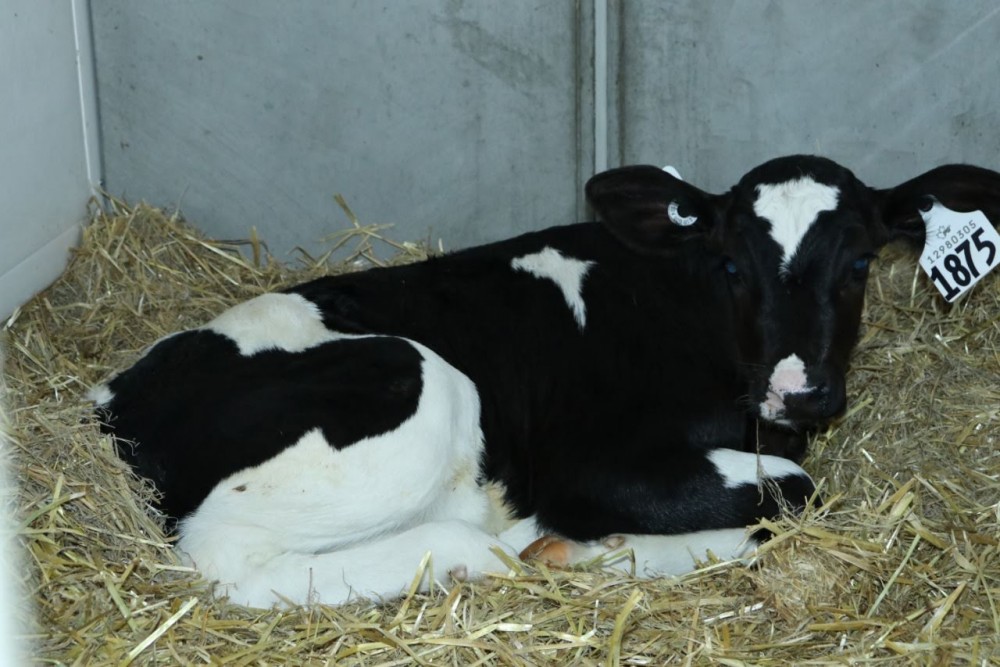Facility Focus: Does Paired Housing Make Sense for Your Calves?
Facility Focus: Does Paired Housing Make Sense for Your Calves? - Dairy Herd Management
By TAYLOR LEACH February 21, 2022
Everyone needs a good friend to help them get through the hard times. Maybe calves aren't so different. According to Jennifer Van Os, extension specialist and assistant professor at the University of Wisconsin-Madison, research has shown social benefits in raising calves in well-managed pairs.
"Housing calves with at least one companion can improve animal welfare, calf growth, and consumer perception," Van Os says. "Companionship is important for calves because they are social creatures. Calves raised with companions also show greater adaptability to change. They are more willing to try new feeds such as grain, hay, and TMR. This translates into better resilience to stress and less bellowing during weaning."
Raising calves in any type of facility doesn't come without its own set of challenges, and paired calf housing is certainly no different. While individual housing can limit calf-to-calf disease transmission, it doesn't prevent it. Van Os also notes that calf disease is usually caused by a combination of factors, not just housing type.
"Raising healthy calves in pairs or groups is achievable when managed well," she says. "Before deciding to move to pair or group housing, it is a good idea for a farm to take stock of the current health performance of their calves."

Housing Options
When it comes to choosing a paired housing system for your operation, there are several options available.
Two Hutches - "One low-cost option is to combine existing hutches into pairs by connecting them with fencing. Corral panels are sturdier, but wire panels are functional and less expensive," Van Os says. "A downside of the paired-hutch system is calves within a pair prefer to spend most of their time together. This means both calves will lie inside the same hutch. Although this is good for their social bonding, a single hutch does not provide enough space or bedding material for both growing calves and their waste. This creates challenges to maintain a clean, dry environment."
Super Hutches - Another option utilizes super hutches, which typically offer 60 square feet of bedded space. This larger hutch gives paired calves more space to lie together. However, a disadvantage of this larger space means a larger door opening, which could allow for inclement weather conditions to sneak in. Avoid facing hutch openings toward the direction from which prevailing winds blow.
Shared Pens - For farmers who prefer to raise calves indoors, utilizing small, shared pens may be a good fit.
"Many producers create pairs or small groups by removing the panels dividing individual pens," Van Os says. "On some farms, calves are initially housed individually. For example, calves a few days apart in age may be separated initially to ensure both calves are drinking milk confidently before pairing. Other farms with same-age calves choose to pair them starting at birth. Some of those producers have reported reduced infrastructure costs for dividers relative to individual pens."
Before making the switch to raising calves in pairs, it's important to have sound management practices already set in place. Take time to evaluate all options, look over strengths and weaknesses and put together a plan with your veterinarian. While raising calves in pairs is not cut out for everyone, the benefits are promising.
If you have questions about troubleshooting your heifer management, please reach out to Camila Lage at cd546@cornell.edu or 607-422-6788
Upcoming Events
WEBINAR - Automated Milking Systems Efficiency: Balancing Focus on Individual Cows and System Optimization
May 8, 2024
Please join Cornell the SWNY team and MSU Extension for our talk with Dr. Pablo Silva Boloña on improving efficiency of Automated milking systems by focusing on milking settings for individual and group success.
Broiler Field Day at Sunny Cove Farm
June 6, 2024
Alfred Station, NY
Join us for a field day to explore broiler production, processing, and finances. Meghan Snyder of Sunny Cove Farm will be our host. She raises small batches of organic broilers, processing them on-farm under the 1,000 bird exemption.
Cornell Seed Growers Field Day
July 2, 2024
Ithaca, NY
Please Save the Date for the Cornell Seed Growers Field Day to be held the morning of July 2nd. The event will be held at the NYSIP Foundation Seed Barn, 791 Dryden Rd., Rt. 366, Ithaca, NY.
Announcements
No announcements at this time.





